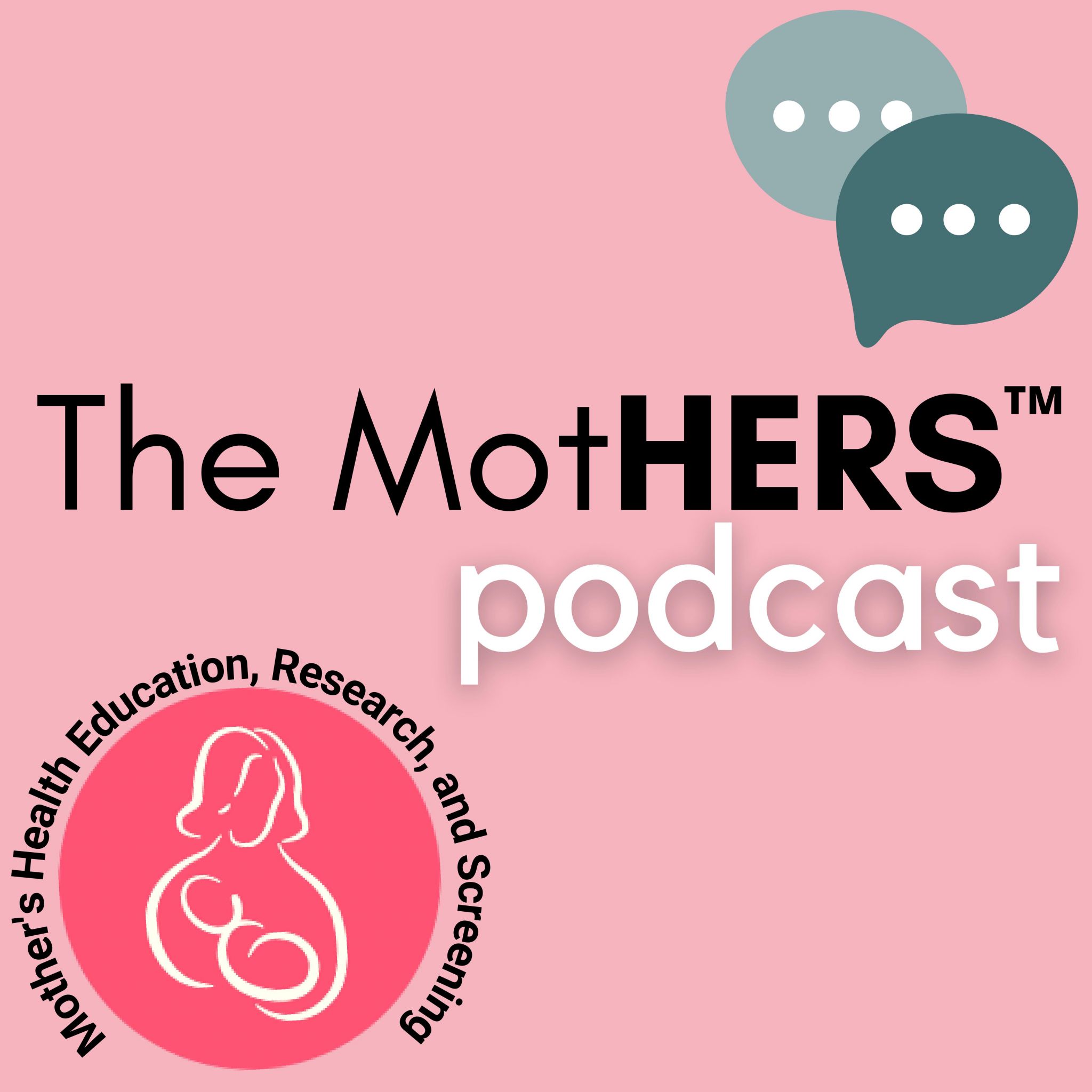The MotHERS™ podcast is an extension of the MotHERS Program™ and aims to provide a reliable source of education about pregnancy on the internet in an effort to improve mother's health through education, research, and screening. The podcast is hosted by Dr. Graeme Smith, head of Obstetrics & Gynaecology at the Kingston Health Sciences Centre in Kingston, Ontario and features various guest speakers discussing a number of different topics related to pregnancy and maternal health.
Listen here 
If you have been enjoying our podcast,
check out the SOGC Women's Health Podcast!
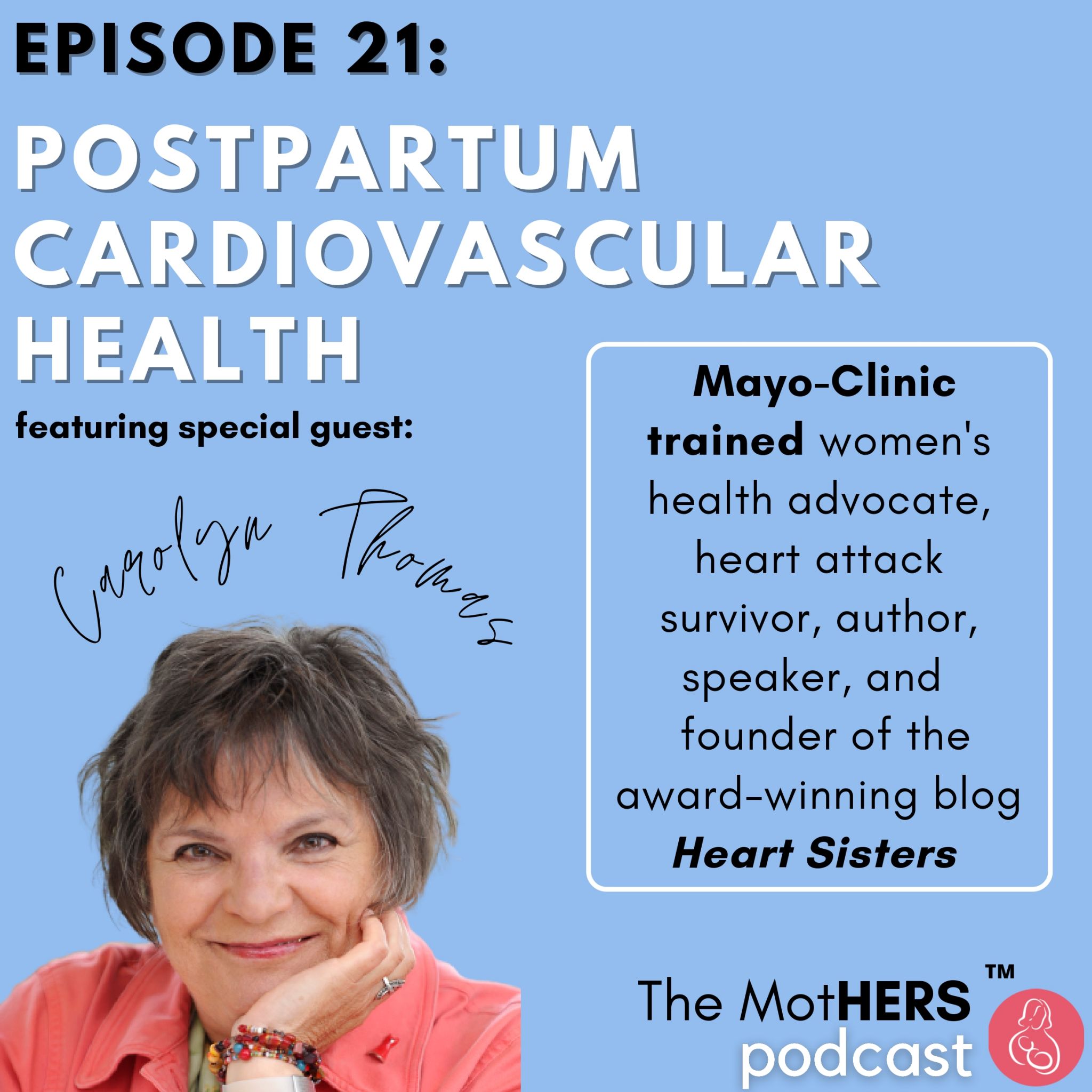
Carolyn Thomas is a Mayo-Clinic trained women's health advocate, heart attack survivor, author, speaker, and founder of the award-winning blog Heart Sisters.
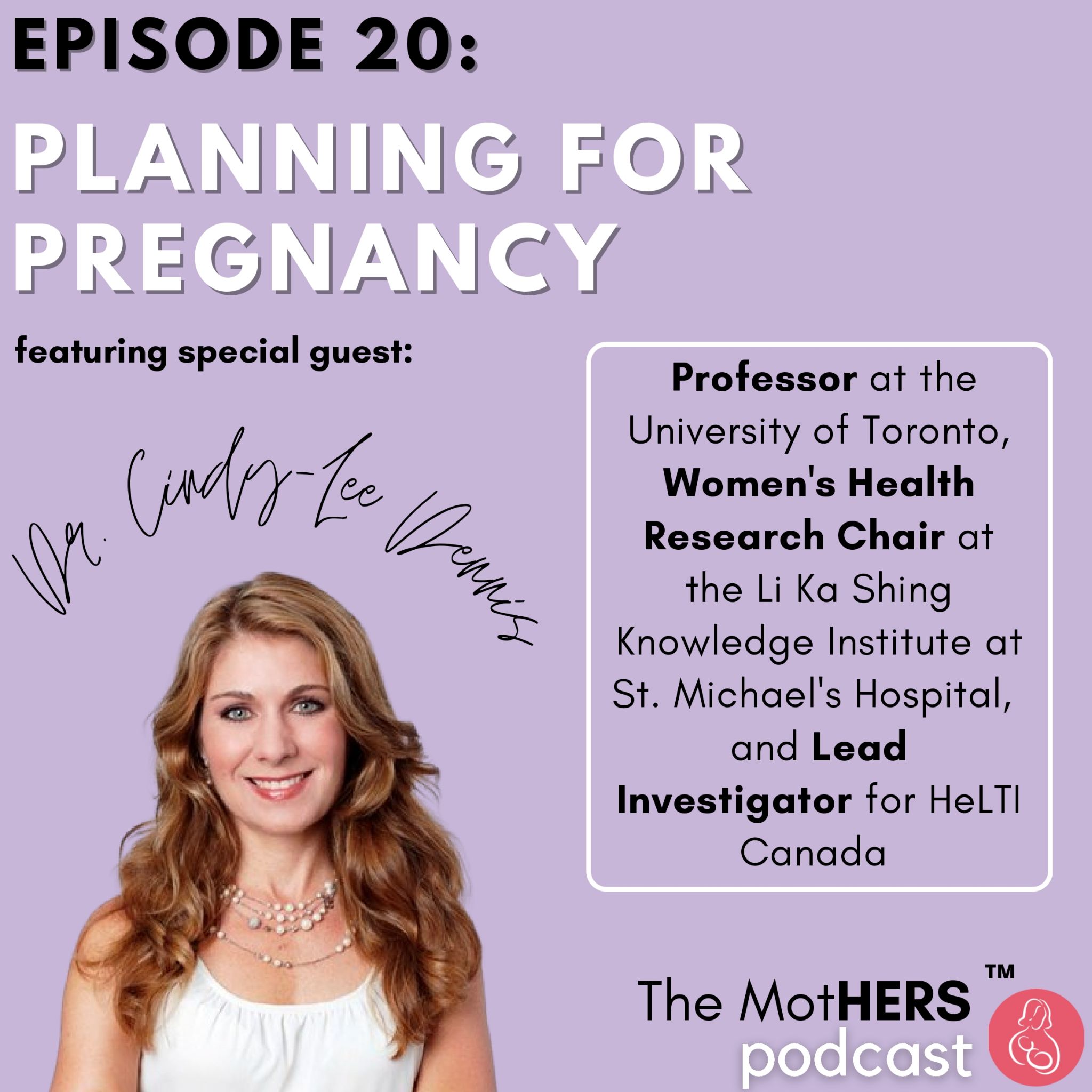
Dr. Cindy-Lee Dennis is a Professor at the University of Toronto, Women's Health Research Chair at the Li Ka Shing Knowledge Institute at St. Michael's Hospital and Lead Investigator for HeLTI Canada. Listen to this episode to hear her talk about planning for pregnancy.
https://research.unityhealth.to/about/li-ka-shing-about/
https://bloomberg.nursing.utoronto.ca/faculty/cindy-lee-dennis/
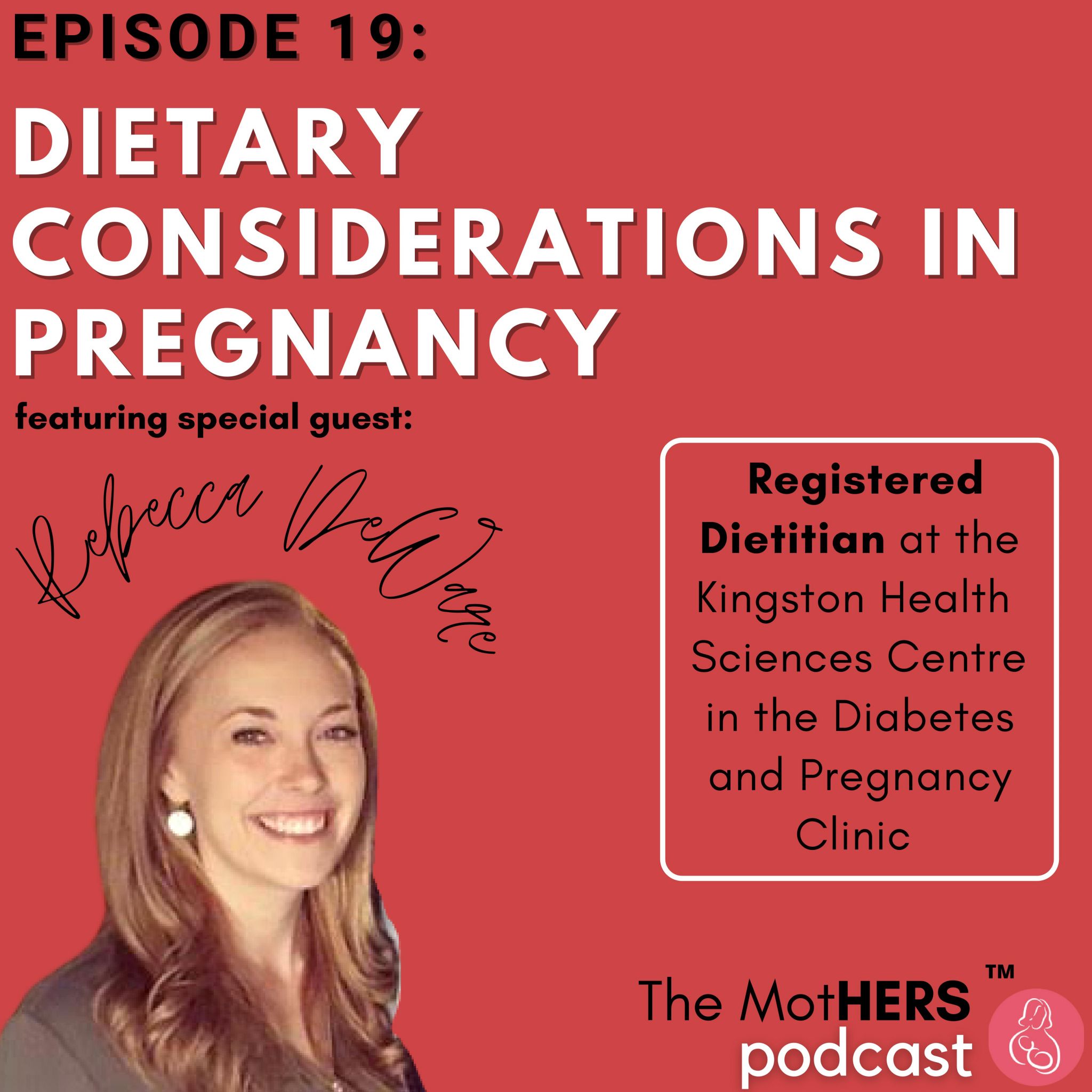
Rebecca DeWare, Registered Dietitian at the Kingston Health Sciences Centre in the Diabetes and Pregnancy Clinic, joins us for our nineteenth episode to discuss dietary considerations in pregnancy in general, as well as specifics related to diabetes in pregnancy
Websites mentioned in the episode:
Glycemic Index: https://www.diabetes.ca/managing-my-diabetes/tools---resources/the-glycemic-index-(gi)
Easy, healthy recipes:
https://www.diabetes.ca/nutrition---fitness/recipes?Categories=&MealType=&SearchText=&Sort=&Page=1
https://www.heartandstroke.ca/healthy-living/recipes
https://food-guide.canada.ca/en/recipes/
For more recipes check out: https://www.themothersprogram.ca/recipes
Have a recipe to share? Send it to info@themothersprogram.ca
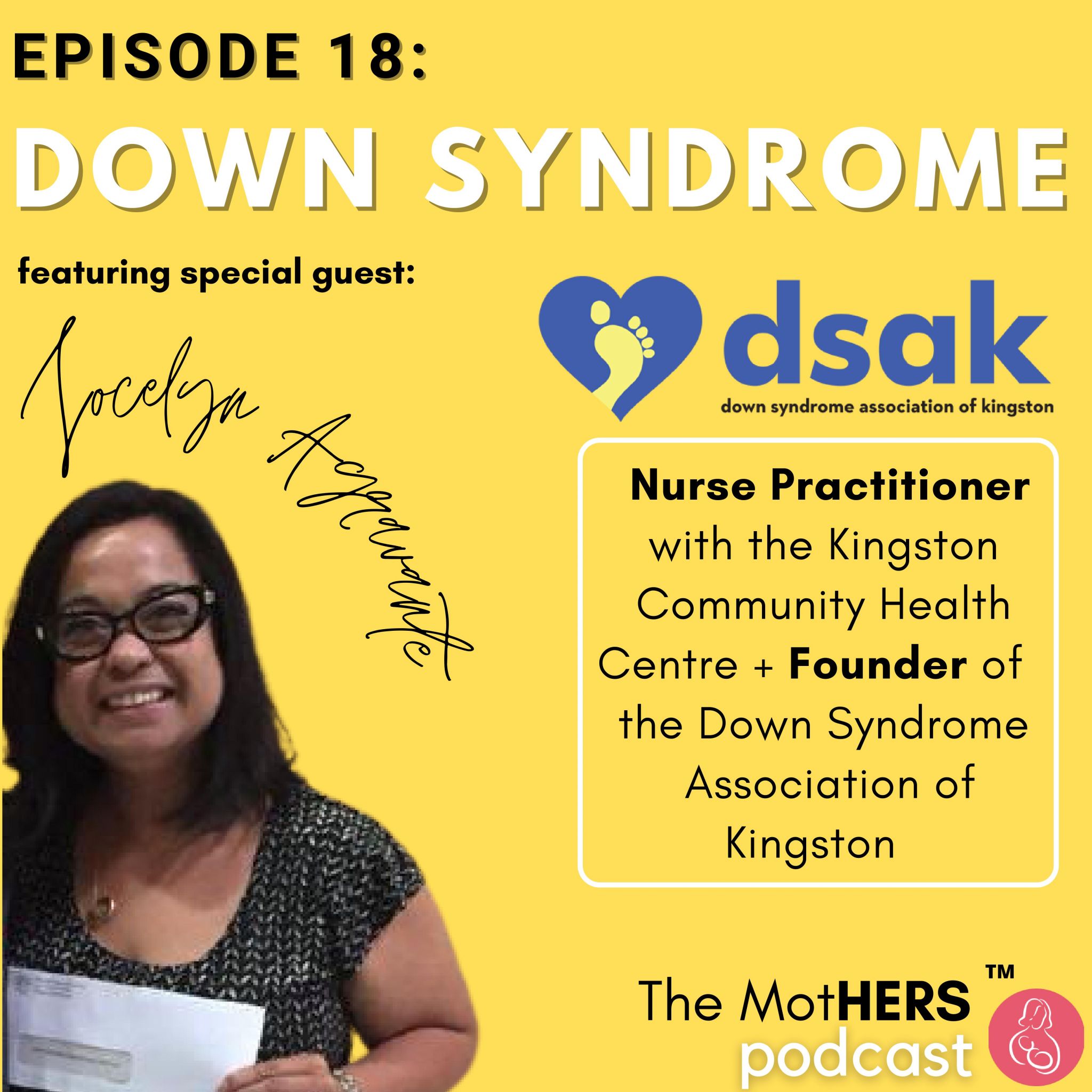
Jocelyn Agravante, Nurse Practitioner with the Kingston Community Health Centre and Founder of the Down Syndrome Association of Kingston, joins us for our eighteenth episode to share her wealth of knowledge and experiences raising a child with Down Syndrome.
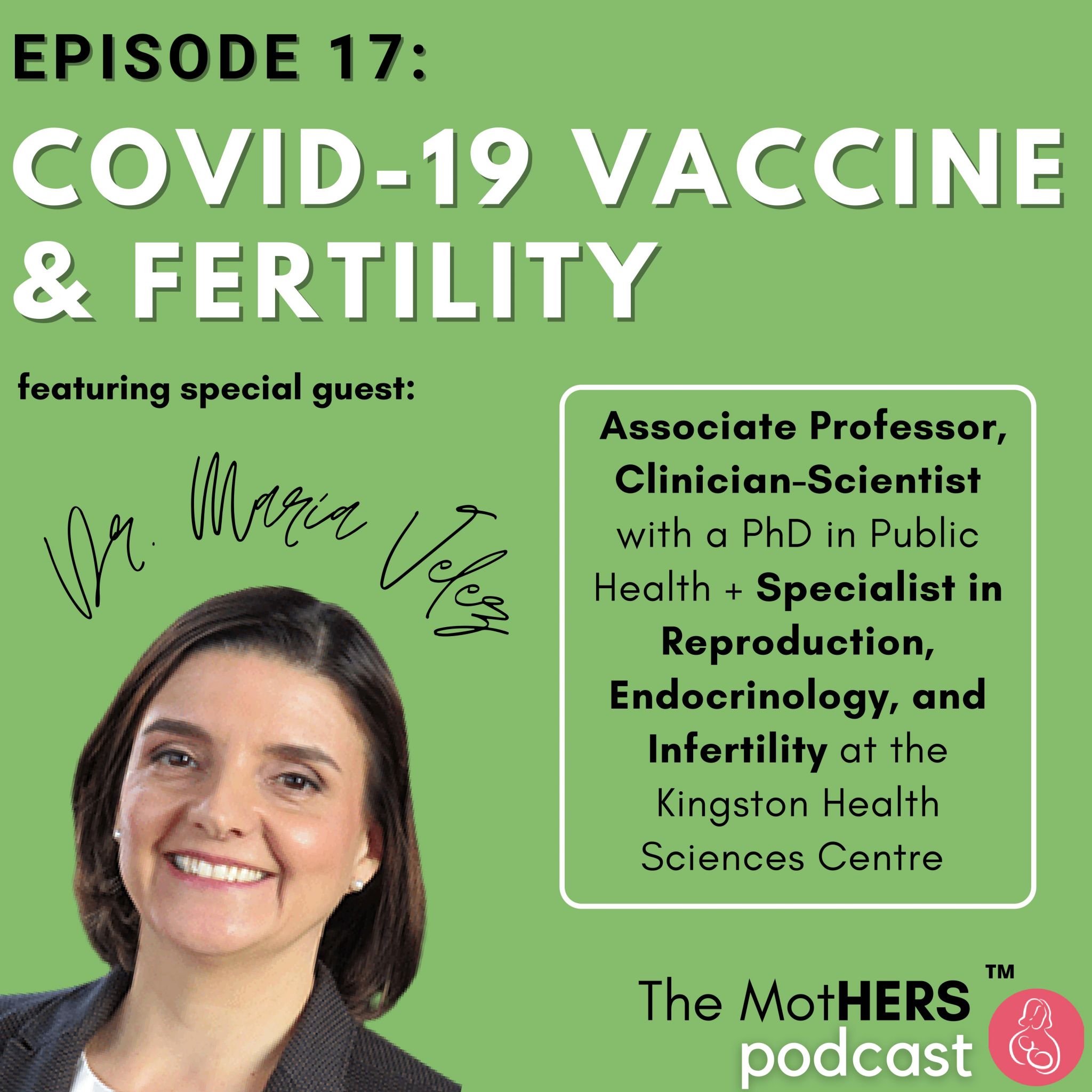
Dr. Maria Velez, Associate Professor, Clinician-Scientist with a PhD in Public Health, and Specialist in Reproduction, Endocrinology, and Infertility at the Kingston Health Sciences Centre, joins us for our seventeenth episode to discuss the Covid-19 Vaccine and Fertility including debunking some of the myths and misinformation that have been circulating on social media. The following report from Public Health Ontario can provide further information.
Public Health Ontario Evidence Brief on COVID-19 Vaccines and Fertility
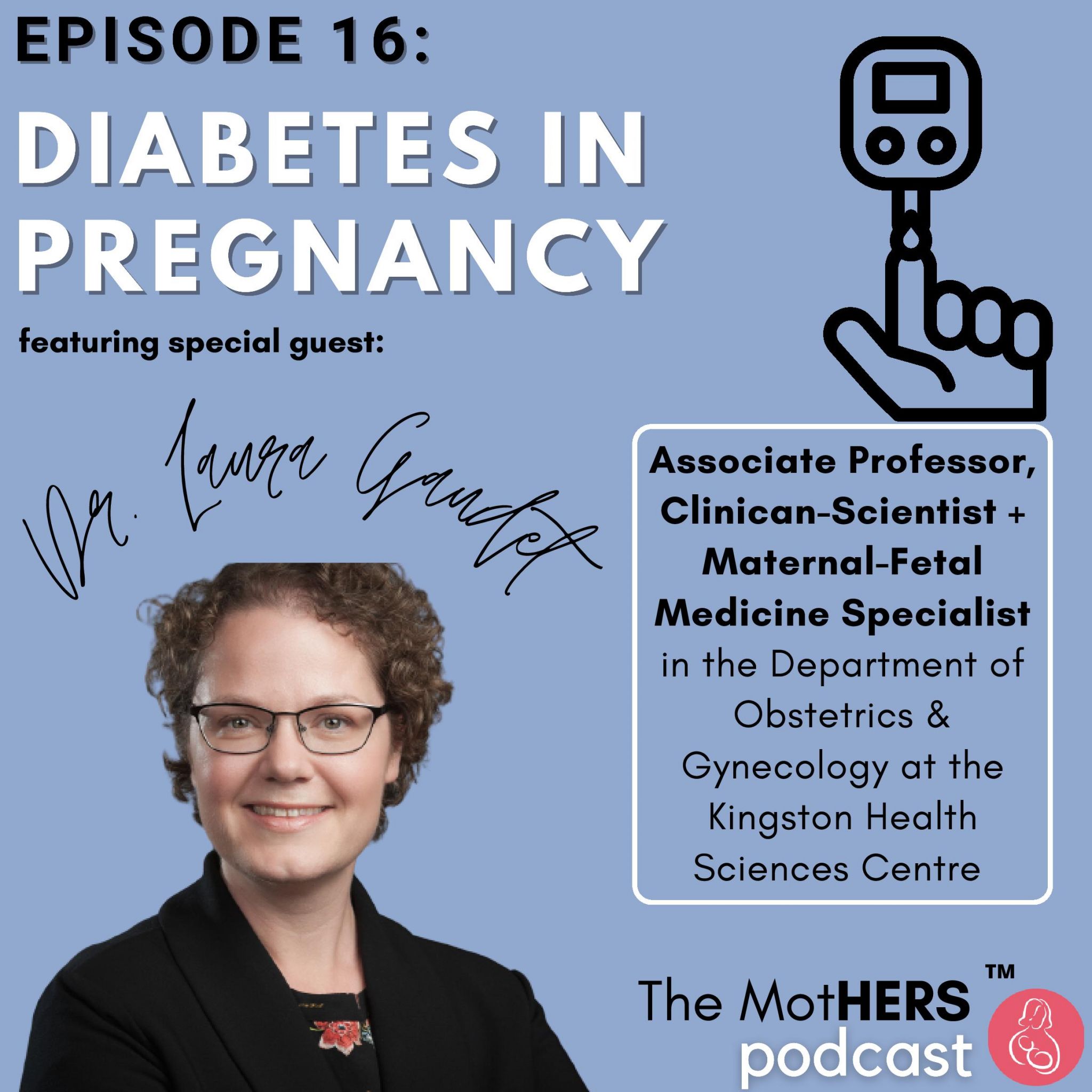
Dr. Laura Gaudet, Associate Professor, Clinician-Scientist, and Maternal-Fetal Medicine Specialist in the Department of Obstetrics & Gynaecology at the Kingston Health Sciences Centre, joins us for our sixteenth episode to discuss diabetes in pregnancy.
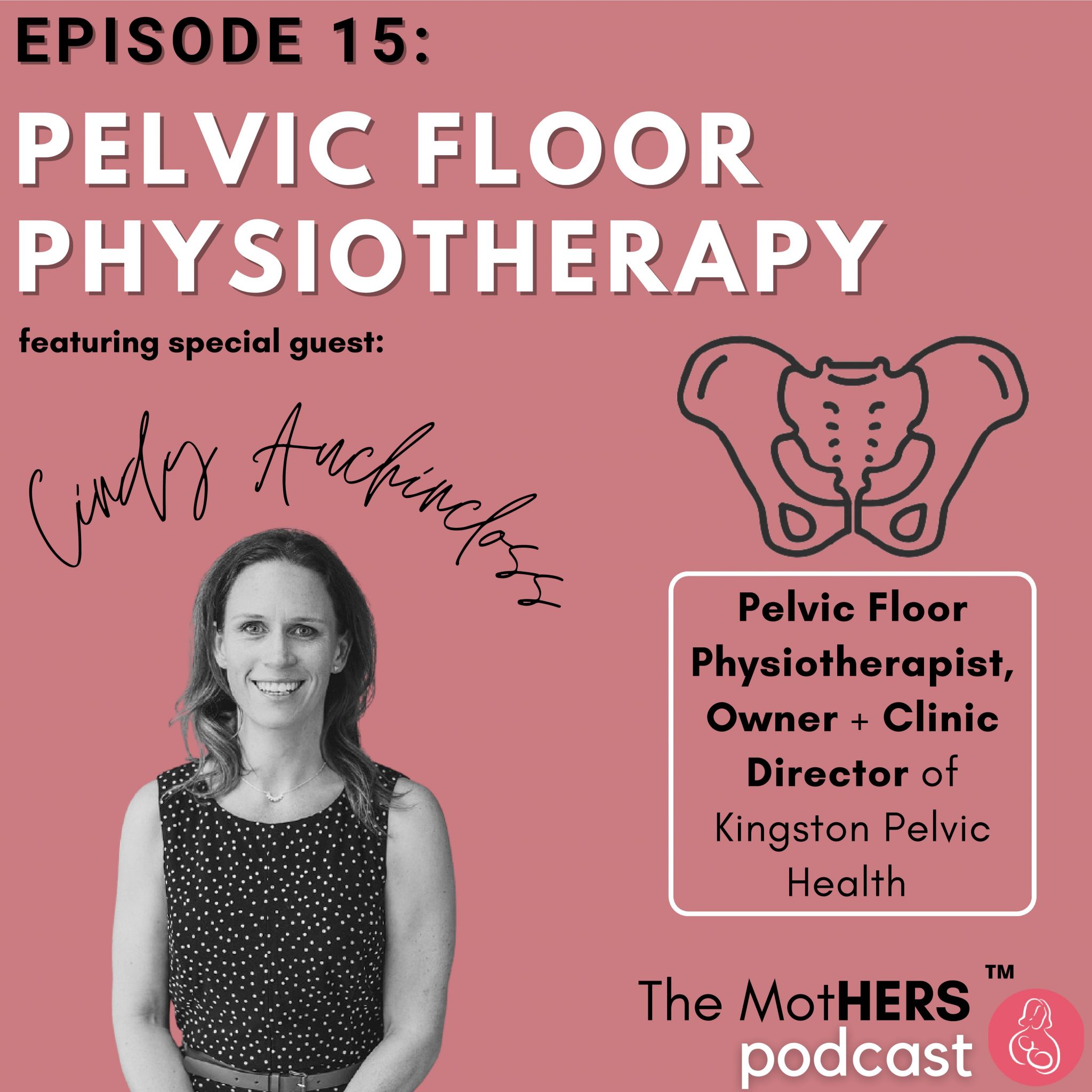
Cindy Auchincloss, Pelvic Floor Physiotherapist, Owner, and Clinic Director of Kingston Pelvic Health, joins us for our fifteenth episode to discuss pelvic floor physiotherapy.
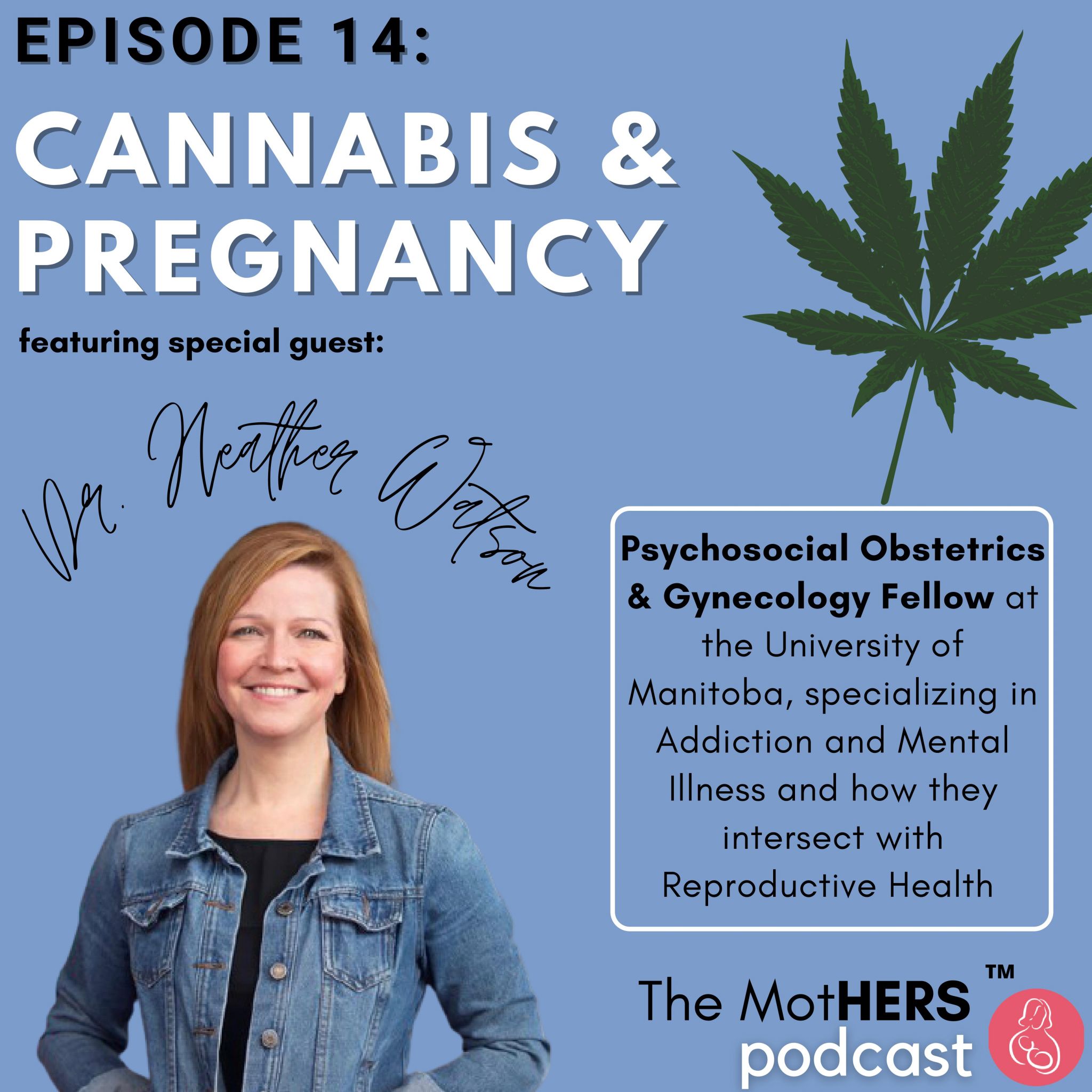
Dr. Heather Watson, Psychosocial Obstetrics & Gynecology Fellow at the University of Manitoba specializing in Addiction and Mental Illness and how they intersect with Reproductive Health, joins us for our fourteenth episode to discuss cannabis use in pregnancy.
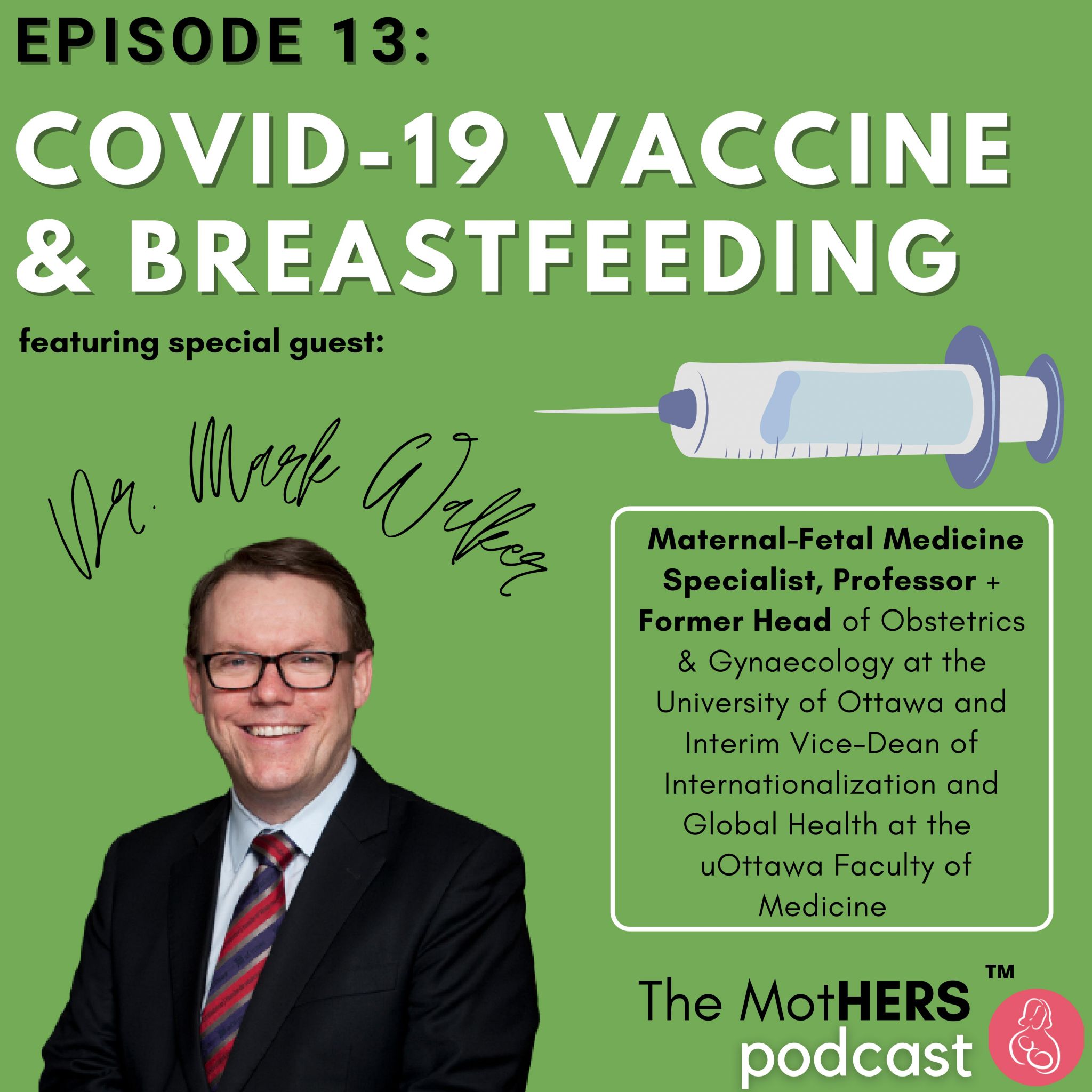
Dr. Mark Walker, Maternal-Fetal Medicine Specialist, Professor + Former Head of Obstetrics and Gynaecology at the University of Ottawa and Interim Vice-Dean of Internationalization and Global Health at the uOttawa Faculty of Medicine, joins us for our thirteenth episode to discuss the Covid-19 vaccine in pregnancy and breastfeeding.
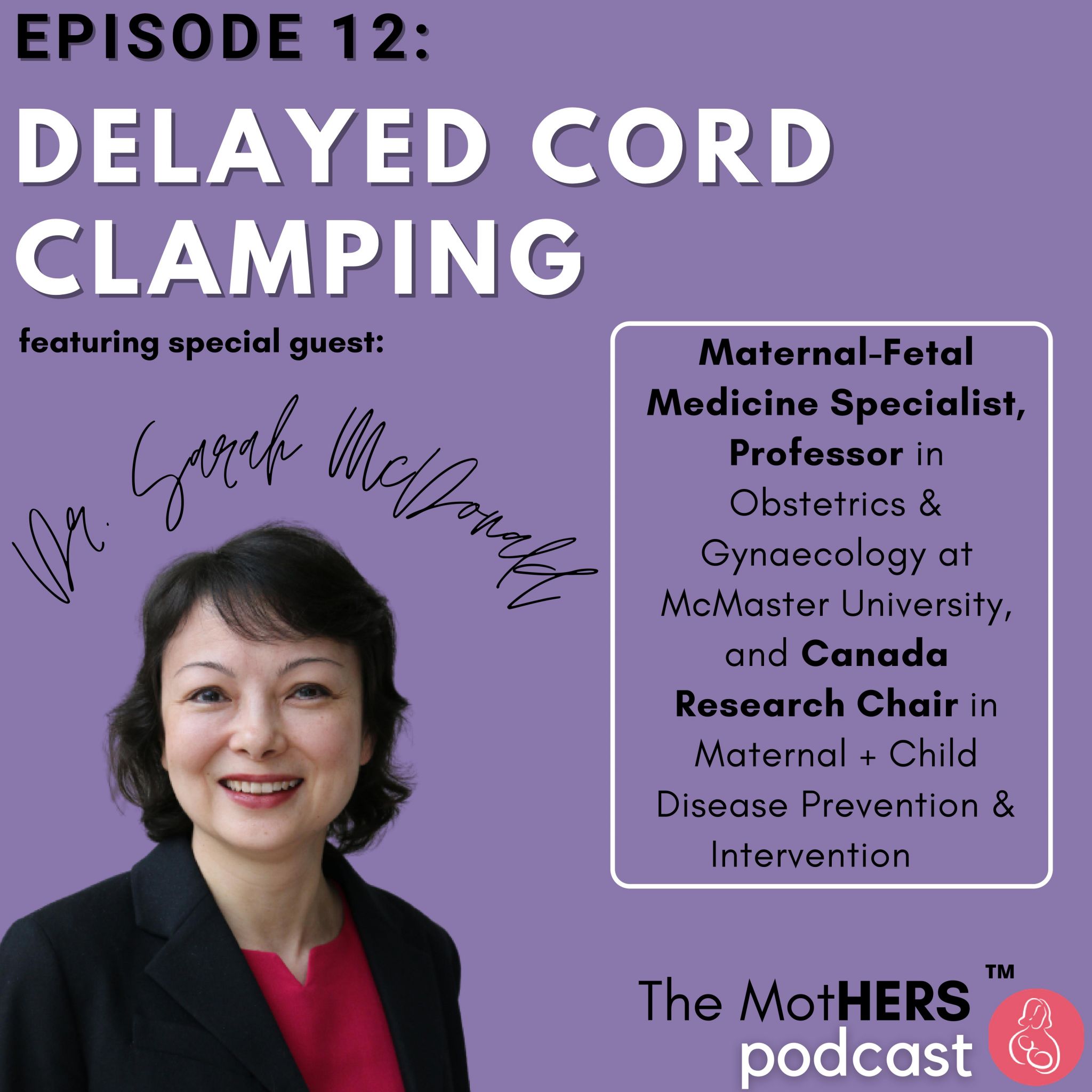
Dr. Sarah McDonald, Maternal-Fetal Medicine Specialist, Professor in Obstetrics and Gynecology at McMaster University, and Canada Research Chair in Maternal + Child Disease Prevention & Intervention, joins us for our twelfth episode to discuss delayed cord clamping at birth.
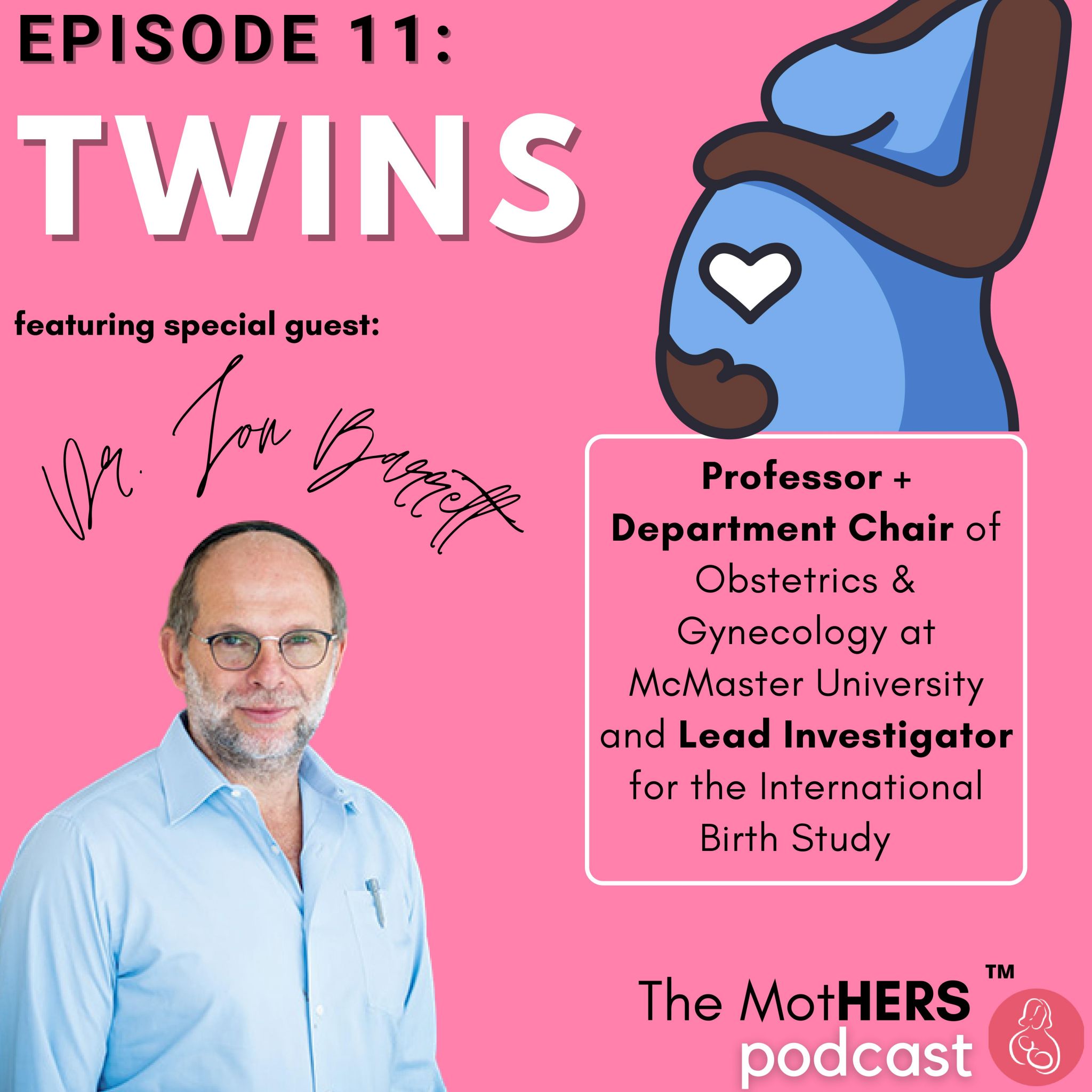
Dr. Jon Barrett, Professor + Department Head of Obstetrics and Gynecology at McMaster University and Lead Investigator for the International Birth Study, joins us for our eleventh episode to discuss twins.
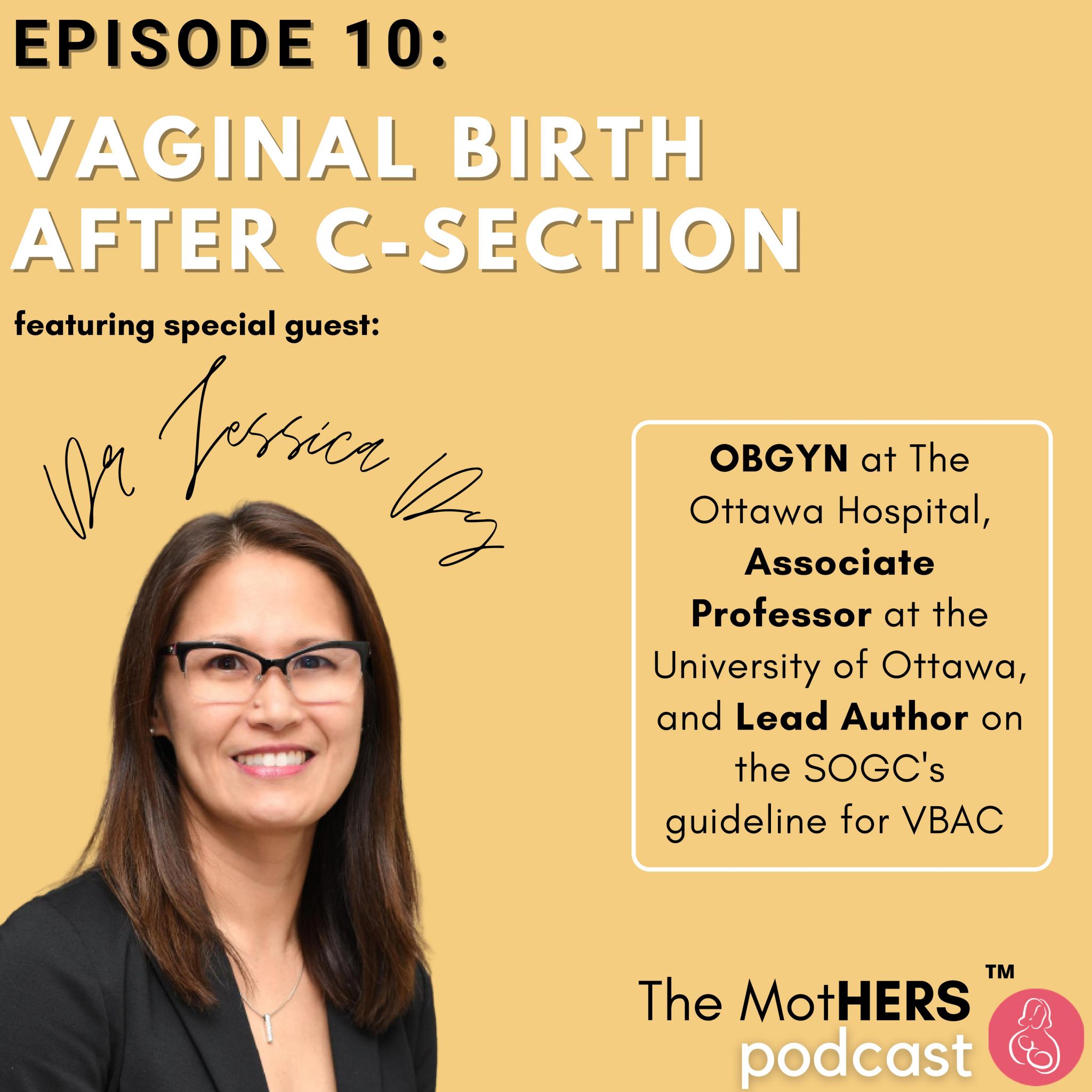
Dr. Jessica Dy, OBGYN at The Ottawa Hospital, Associate Professor at the University of Ottawa, and Lead Author on the SOGC's VBAC guideline joins us for our tenth episode to discuss vaginal birth after C-section.
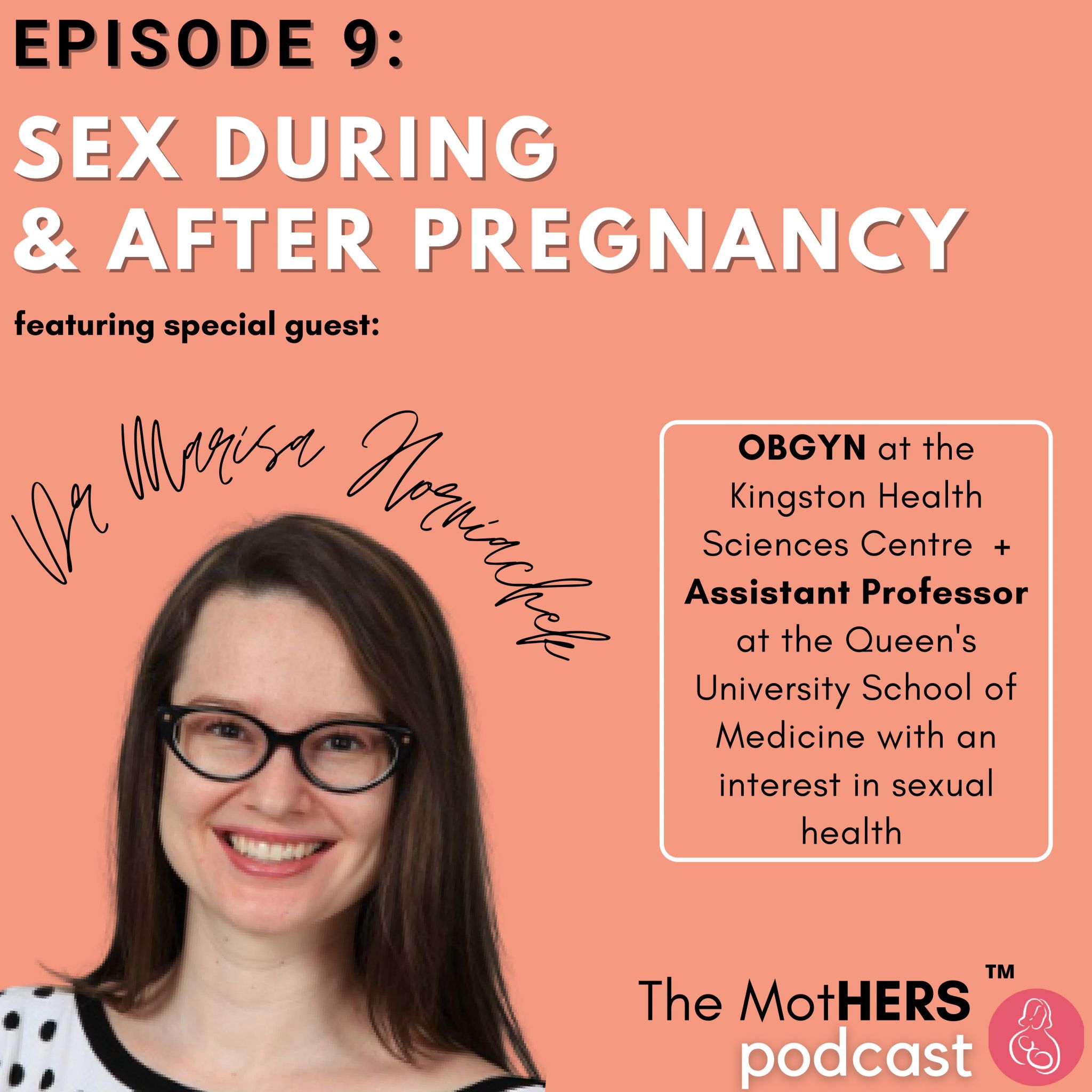
Dr. Marisa Horniachek, OBGYN at the Kingston Health Sciences Centre and Assistant Professor at the Queen's University School of Medicine, joins us for our ninth episode to discuss sex during and after pregnancy.
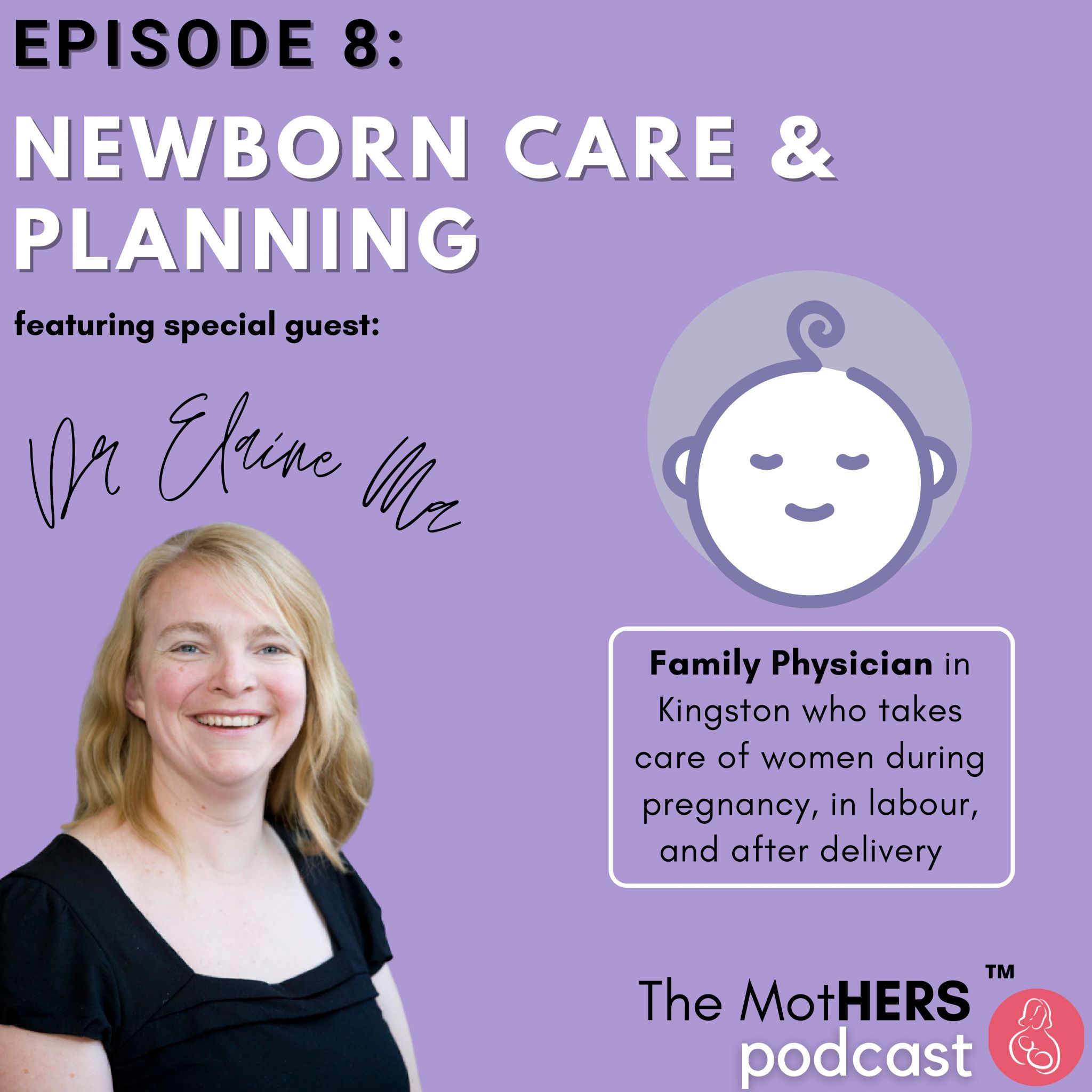
Dr. Elaine Ma, Family Physician in Kingston who takes care of women during pregnancy, in labour, and after delivery, joins us for our eighth episode to discuss newborn care and planning.
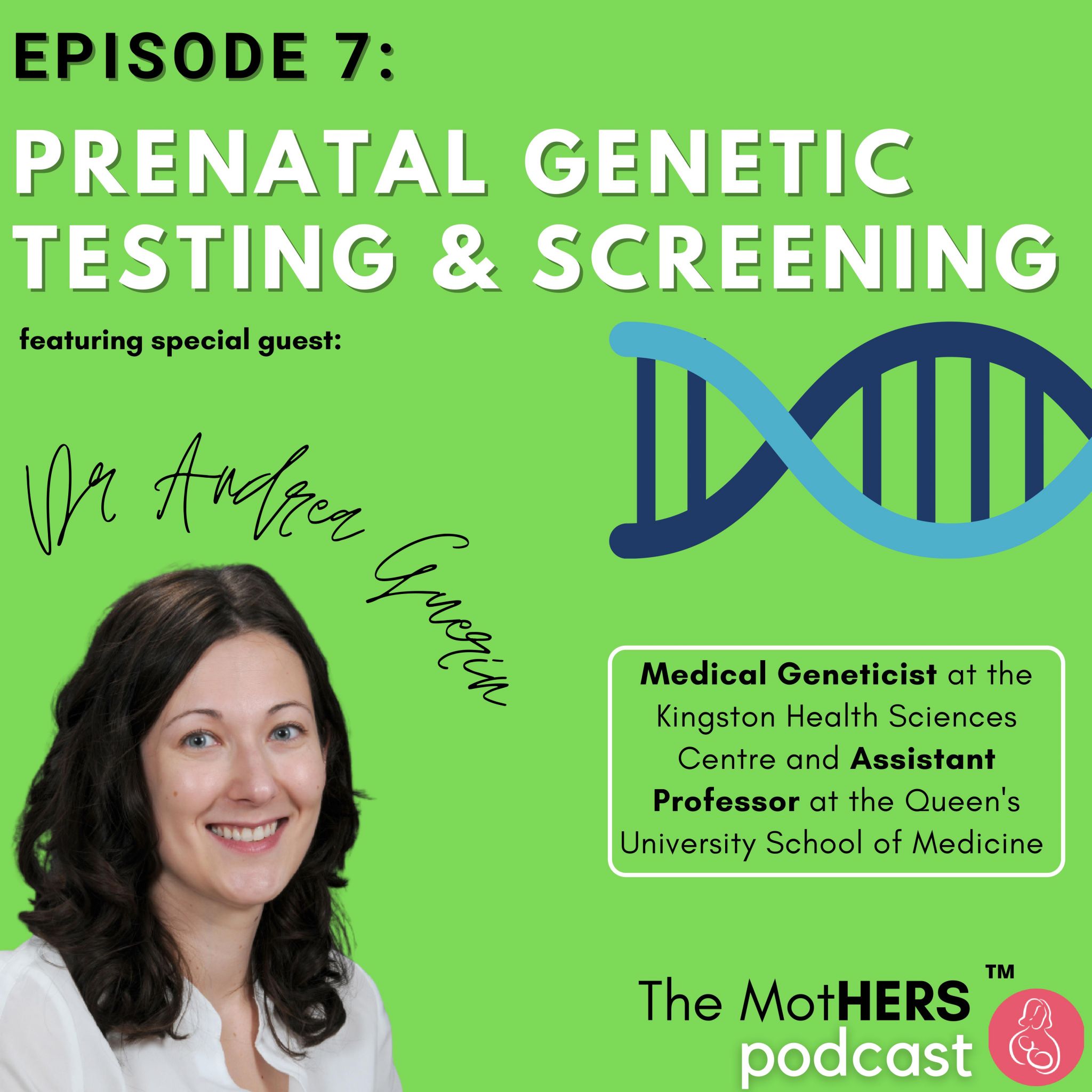
Dr. Andrea Guerin, Medical Geneticist at the Kingston Health Sciences Centre and Assistant Professor at the Queen's University School of Medicine, joins us for our seventh episode to discuss prenatal genetic testing and screening.
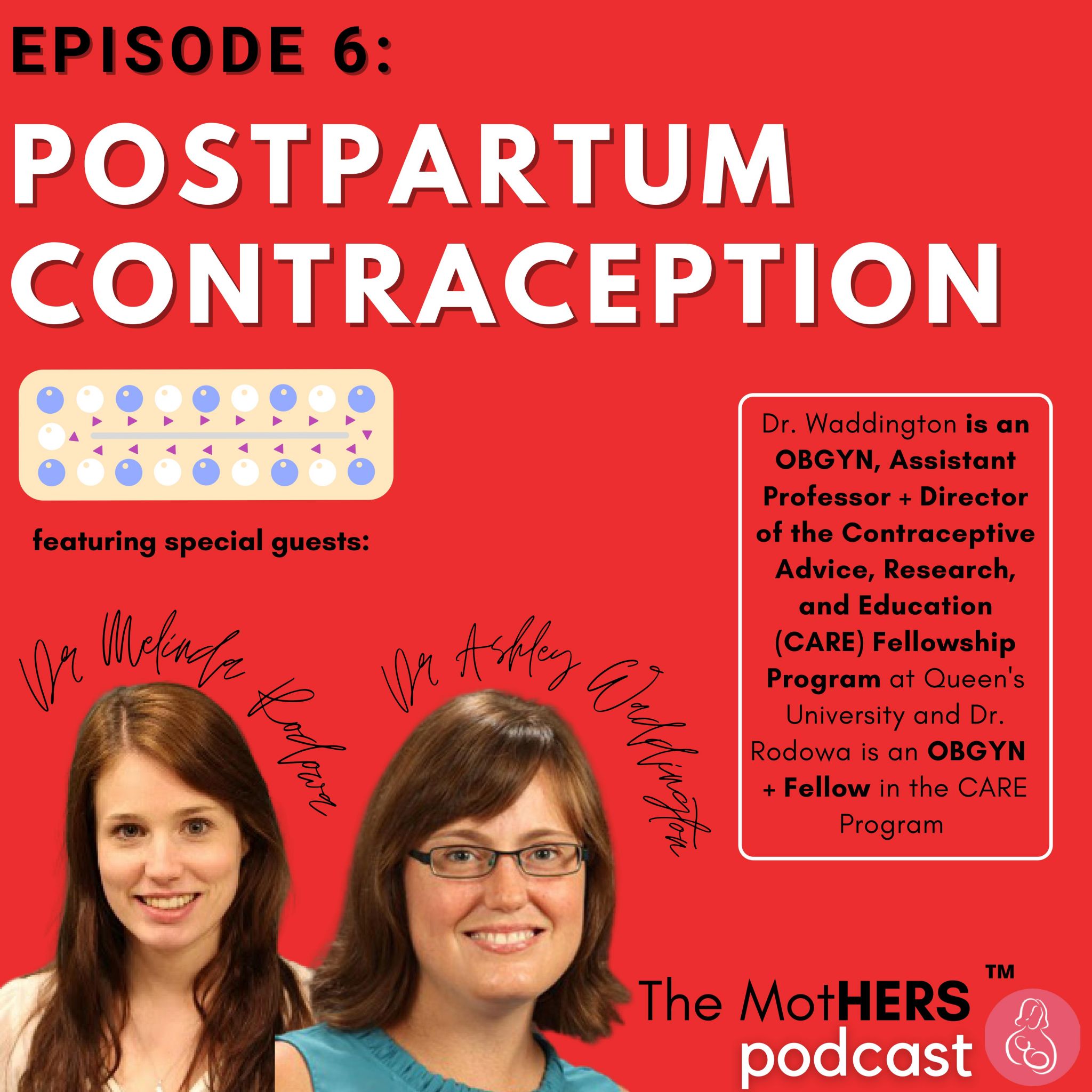
Dr. Ashley Waddington, OBGYN, Assistant Professor and Director of the Contraceptive Advice, Research, and Education (CARE) Fellowship Program at Queen's University, and Dr. Melinda Rodowa, OBGYN + Fellow in the CARE Program, join us for our sixth episode to discuss postpartum contraception.
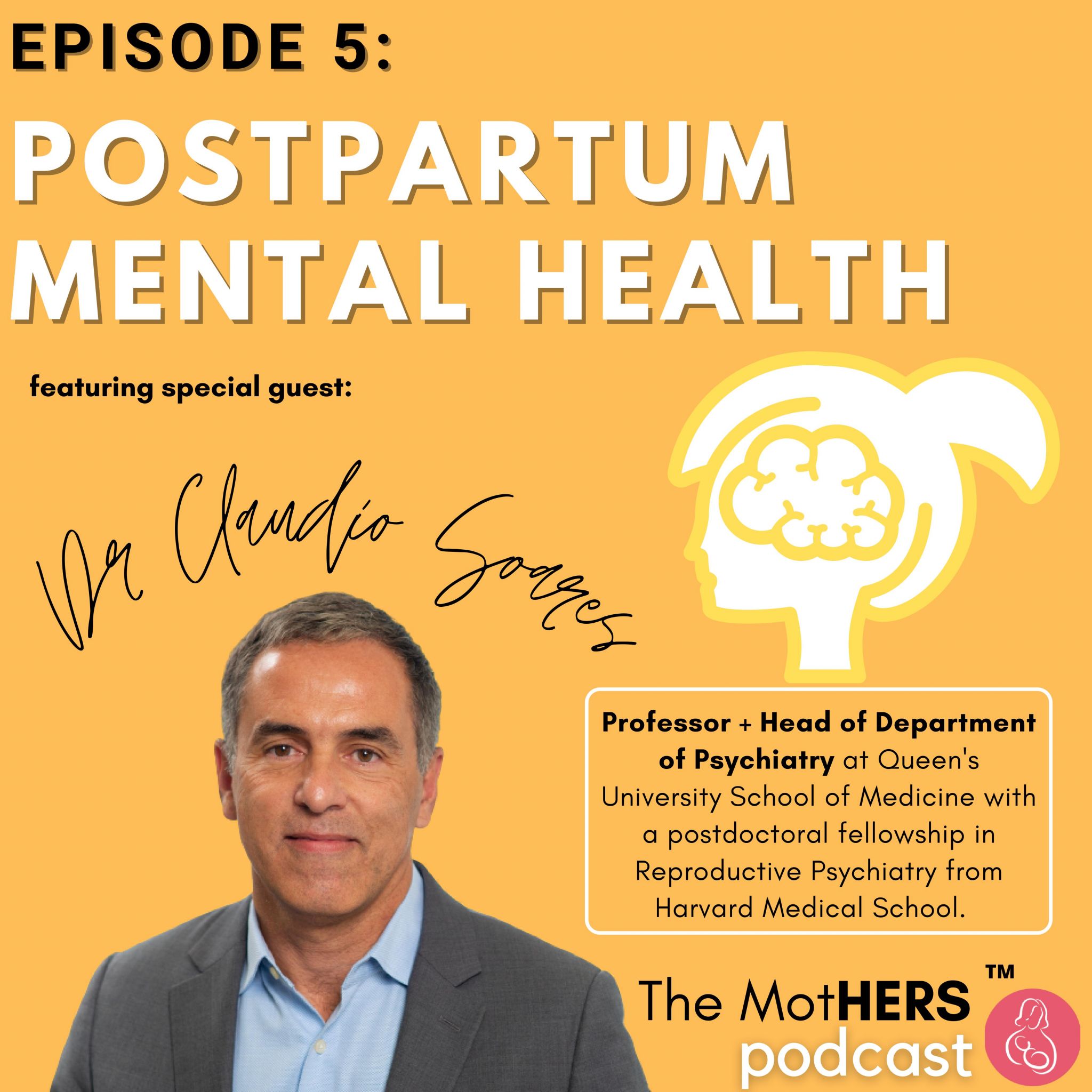
Dr. Claudio Soares, Professor and Head of Department of Psychiatry at Queen's University School of Medicine with a postdoctoral fellowship in Reproductive Psychiatry from Harvard Medical School, joins us for our fifth episode to discuss postpartum mental health.
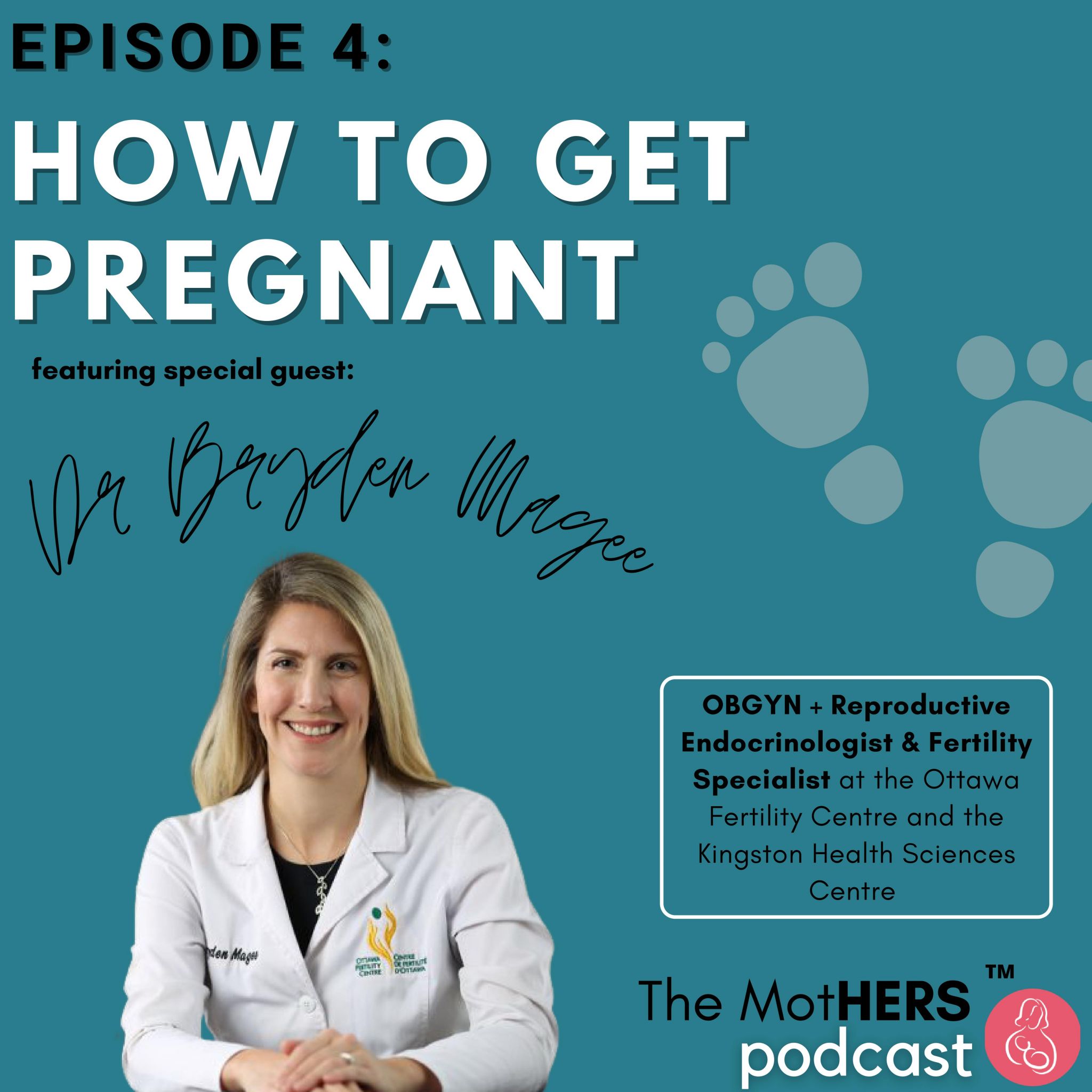
Dr. Bryden Magee, OBGYN and Reproductive Endocrinologist & Fertility Specialist at the Ottawa Fertility Centre and the Kingston Health Sciences Centre, joins us for our fourth episode to discuss how to get pregnant. Tune in to hear her discuss strategies for getting pregnant, fertility options for LGBTQ+ individuals and families, and everything in between.
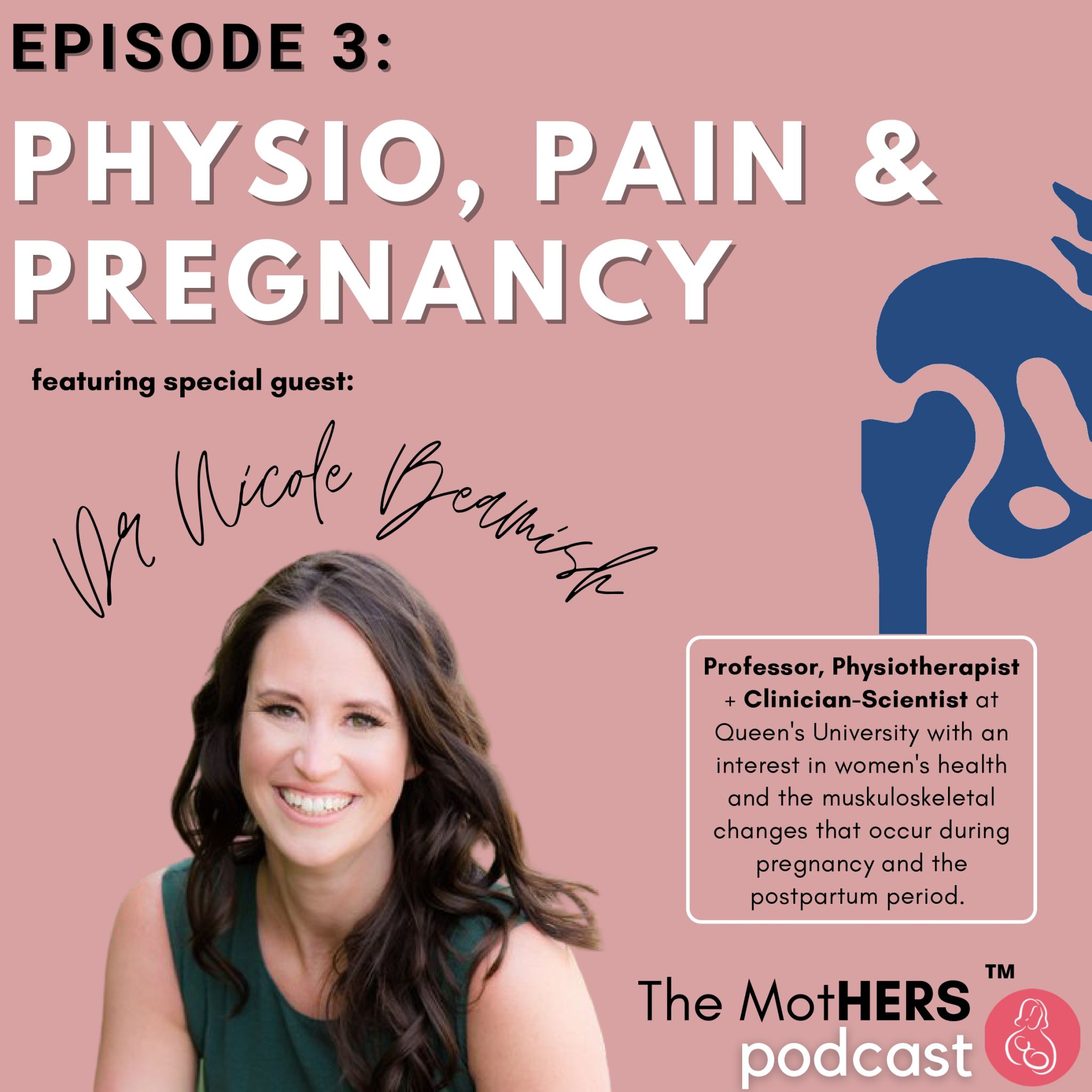
Dr. Nicole Beamish, Physiotherapist and Clinician-Scientist at Queen's University with an interest in women's health, joins us for our third episode to discuss pain and the role that physiotherapy can play in pregnancy and the postpartum period.
Looking for some more information on exercise and pregnancy? Follow these Canadian physiotherapists on Instagram!
- Kelsey Valentin PT: kelseycalentinept
- Anita Lambert: holistichealthphysio
- Rhonda Chamberlain PT: rhondachamberlainpt
- Lacey Forsyth: bumppelvichealth
- Marla Maislin PT: bloomphysio
Want to try yoga? Check out the free version of the down dog yoga app here: www.downdogapp.com
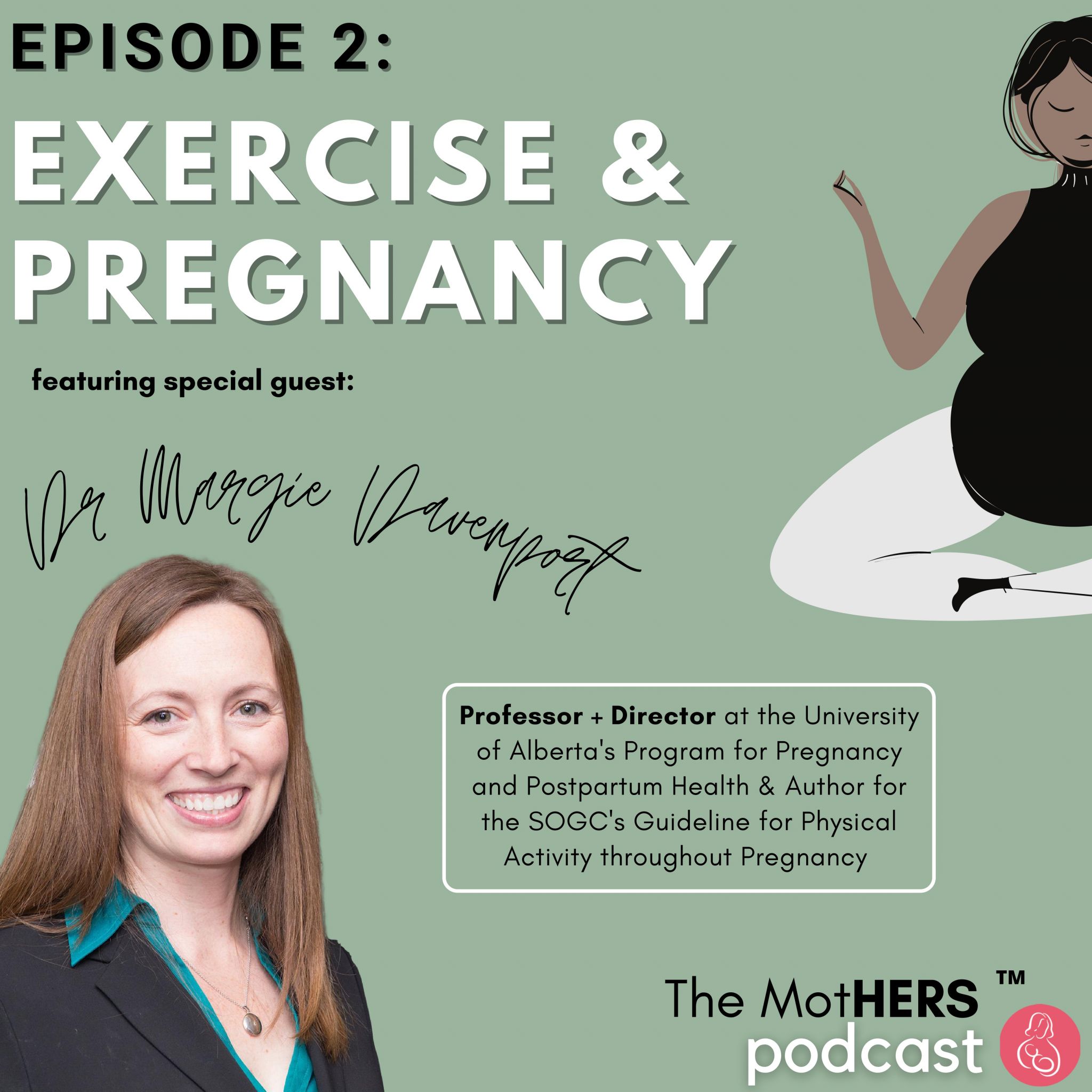
Program for Pregnancy and Postpartum Health
The Program for Pregnancy and Postpartum Health (PPPH) is a multi-site research program developed in 2013, with the mission of conducting research to improve the life-long health of pregnant and postpartum women and their children.
https://www.ksr.ualberta.ca/exerciseandpregnancy/
The 2019 Canadian Guideline for Physical Activity throughout Pregnancy
Key Messages:
- Exercise reduces the risk of common pregnancy complications.
- Previously inactive women can safely start exercise with the goal of achieving the recommended minimum activity. Exercise can be initiated at any point during pregnancy.
- All types of physical activity contribute to a woman's fitness during pregnancy. Activities as simple as walking can reduce pregnancy complications. Aerobic exercise plus other types of exercise (e.g., resistance training) contribute to fitness.
- Women can achieve the recommended physical activity in this guideline in many ways, including activities, such as walking, that have no added expense.
- When exercising women should be cautious of activities where falling or direct physical contact may result in harm to themselves of their fetus.
The specific recommendations in this 2019 Canadian Guideline for Physical Activity Throughout Pregnancy are provided below with corresponding statements indicating the quality of the evidence informing the recommendations and the strength of the recommendations.
- All women without contraindication should be physically active throughout pregnancy (strong recommendation, moderate quality evidence).
- Pregnant women should accumulate at least 150 minutes of moderate-intensity physical activity each week to achieve clinically meaningful health benefits and reductions in pregnancy complications (strong recommendation, moderate quality evidence).
- Physical activity should be accumulated over a minimum of 3 days per week; however, being active every day is encouraged (strong recommendation, moderate quality evidence).
- Pregnant women should incorporate a variety of aerobic exercise and resistance training activities to achieve greater benefits. Adding yoga and/or gentle stretching may also be beneficial (strong recommendation, high quality evidence).
- Pelvic floor muscle training (e.g., Kegel exercises) may be performed on a daily basis to reduce the risk of urinary incontinence. Instruction in proper technique is recommended to obtain optimal benefits (weak recommendation, low quality evidence).
- Pregnant women who experience light-headedness, experience nausea, or feel unwell when they exercise flat on their back should modify their exercise position to avoid the supine position (weak recommendation, very low quality evidence)
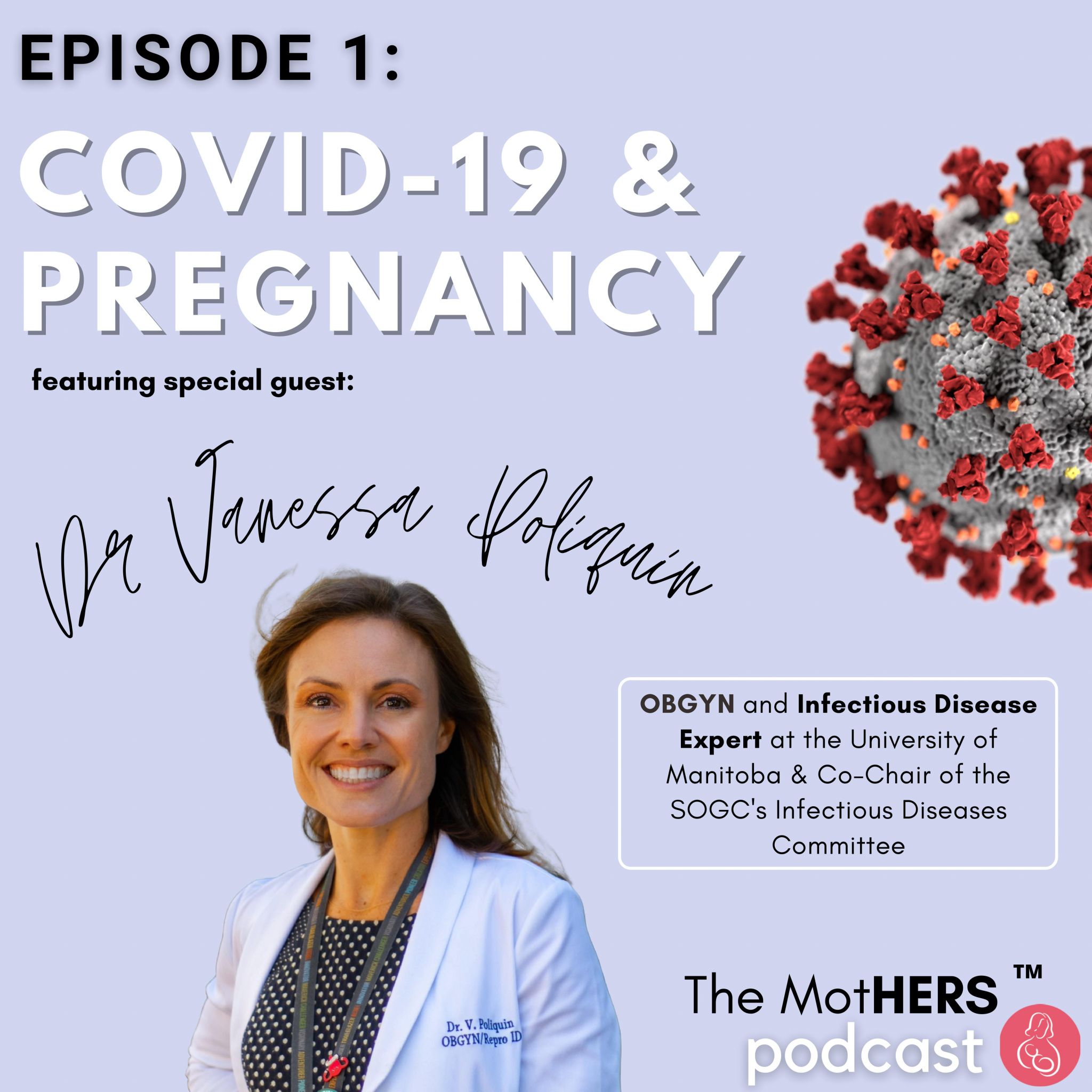
COVID-19 Vaccine in Pregnancy
The Society of Obstetricians and Gynecologists of Canada (SOGC) has released the following statement:
The SOGC acknowledges the need for guidance related to the COVID-19 vaccine and pregnancy and during lactation. We recognize the difficulty facing women and their health care providers at this time, due to the absence of clinical trials that can support evidence-informed recommendations about the COVID-19 vaccine for pregnant and breastfeeding populations. Information related to COVID-19, the impact of the disease on pregnancy and data related to COVID-19 vaccines in development are rapidly evolving. The information contained herein is subject to change as further evidence becomes available and currently applies to all proposed COVID-19 vaccines.
For individuals who are at high risk of infection and/or morbidity from COVID19, it is the SOGC’s position that the documented risk of not getting the COVID-19 vaccine outweighs the theorized and undescribed risk of being vaccinated during pregnancy or while breastfeeding and vaccination should be offered.
The full statement may be accessed here: SOGC Statement on COVID-19 Vaccination in Pregnancy
COVID-19 in Pregnancy
The COVID-19 pandemic is continually evolving, as such, the SOGC is continually reviewing emerging evidence. On December 1st, 2020 they released an updated committee opinion, which outlines the existing evidence.
The full document may be accessed here: Committee Opinion No. 400: COVID-19 and Pregnancy
Canadian Surveillance of COVID-19 in Pregnancy: Epidemiology, Maternal and Infant Outcomes
Globally, there are limited data on COVID-19 in pregnancy to inform recommendations for pregnant women and their care providers. This national surveillance project serves to better our understanding of the epidemiology and outcomes associated with COVID-19 in pregnancy and to thereby provide critical data to inform recommendations for pregnant women and their infants.
https://ridprogram.med.ubc.ca/cancovid-preg/

